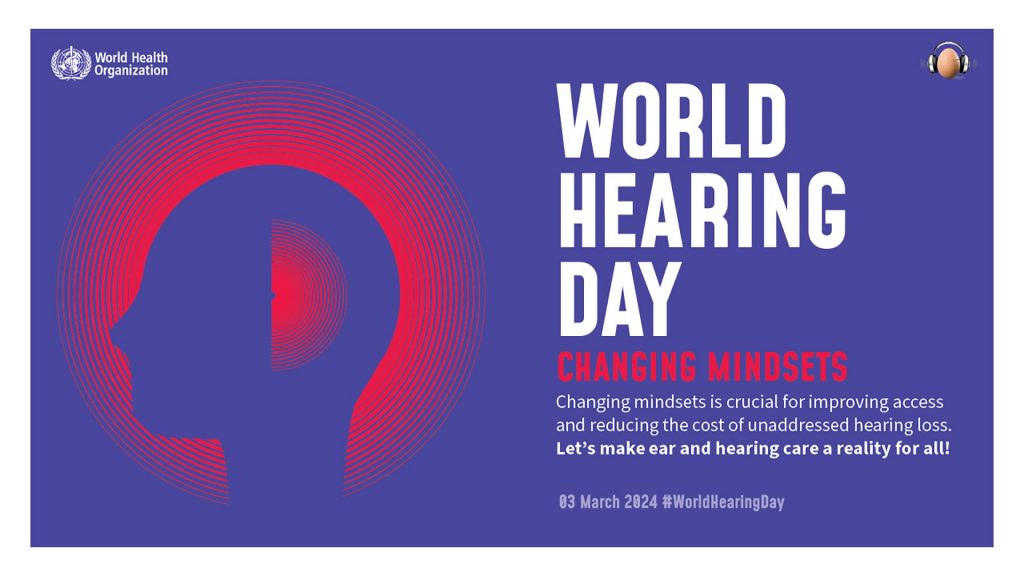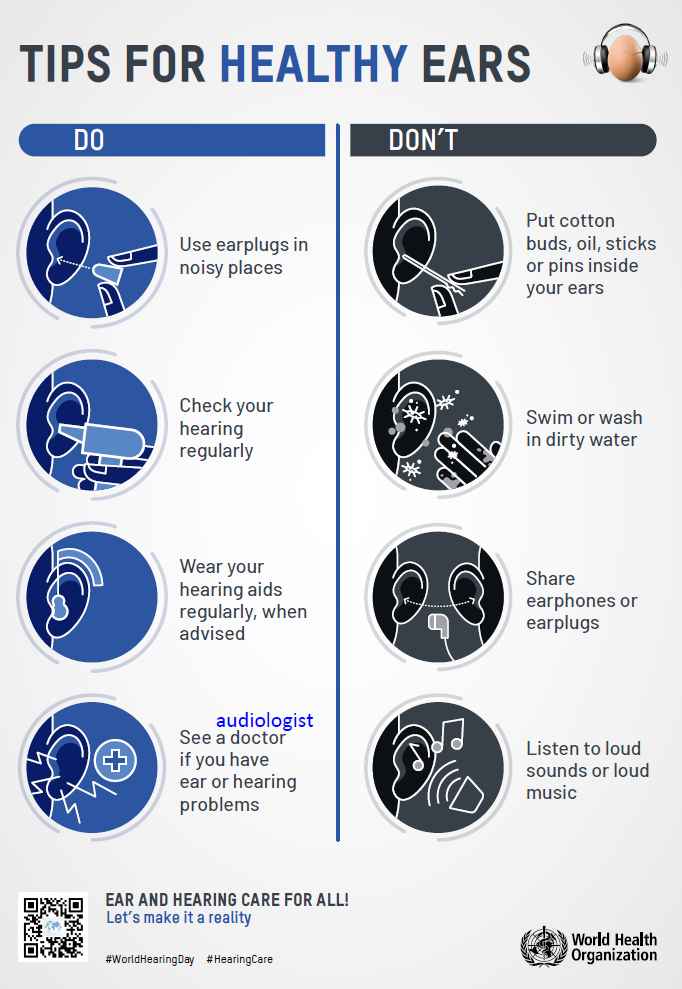Who Cares to Listen?
Let’s recognise World Hearing Day on the 3rd March 2024. Why?
Do you know around 4 million Australians (1 in 6 people) are living with hearing loss? The prevalence of hearing loss will continue to rise, due to the increasing risk of exposure to noise pollution and an aging population. By 2050, a predicted 9 million Australians (1 in 4 people) will be afflicted by hearing loss.1,4
Hearing is fundamental to maintaining quality of life. Poor hearing health negatively impacts all aspects of our lives and wellbeing; including mental health, education and employment.5 Hearing loss is also associated with an increased risk of developing dementia.6 The economic cost of hearing loss to Australia is $33.3 million per year, through loss of productivity and wellbeing.2
Ear and hearing problems are one of the most common issues facing the community. And over 60% of these issues can be addressed by primary healthcare professionals3; such as, audiologists.
Help us raise community awareness and celebrate World Hearing Day on 3rd March 2024.

World Hearing Day is the largest global awareness campaign by the World Health Organisation. It aims to promote ear and hearing care, as well as raise awareness on hearing loss. World Hearing Day 2024 will highlight the importance of hearing care within primary care, as an essential component of universal health coverage.7
Let’s get proactive in caring for our ears and hearing. Follow the below Tips for Healthy Ears, and feel free to share it with others.

If you value being connected to the people you love and the world around you, give yourself the gift of a hearing health assessment at Holistic Audiology. Hearing Better Together.
Experience the difference at Holistic Audiology
REFERENCES:
- Parliament of Australia. (2010). The extent and causes of hearing impairment in Australia. https://www.aph.gov.au/parliamentary_business/committees/senate/community_affairs/completed_inquiries/2008-10/hearing_health/report/c02
- Deloitte Access Economics. (2017). The social and economic cost of hearing loss in Australia. Hearing Care Industry Association. https://www.hcia.com.au/hcia-wp/wp-content/uploads/2017/08/Social-and-Economic-Cost-of-Hearing-Health-in-Australia_June-2017.pdf
- World Health Organisation (WHO). (2023). World Hearing Day 2023 – Communication Toolkit. https://www.who.int/publications/m/item/world-hearing-day-2023—communication-toolkit
- Commonwealth of Australia. (2010). Australia to 2050: future challenges. https://treasury.gov.au/sites/default/files/2019-03/IGR_2010_Overview.pdf
- Department of Health and Aged Care. (2022). About ear health. https://www.health.gov.au/topics/ear-health/about#:~:text=In%20Australia%3A,have%20noise%2Drelated%20ear%20damage
- Livingston, G. et. al. (2020). Dementia prevention, intervention, and care: 2020 report of the Lancet Commission. Lancet 2020; 396: 413–46. https://doi.org/10.1016/S0140-6736(20)30367-6
- World Health Organisation (WHO). (2023). World Hearing Day 2023 (3 March). https://www.who.int/campaigns/world-hearing-day/2023
